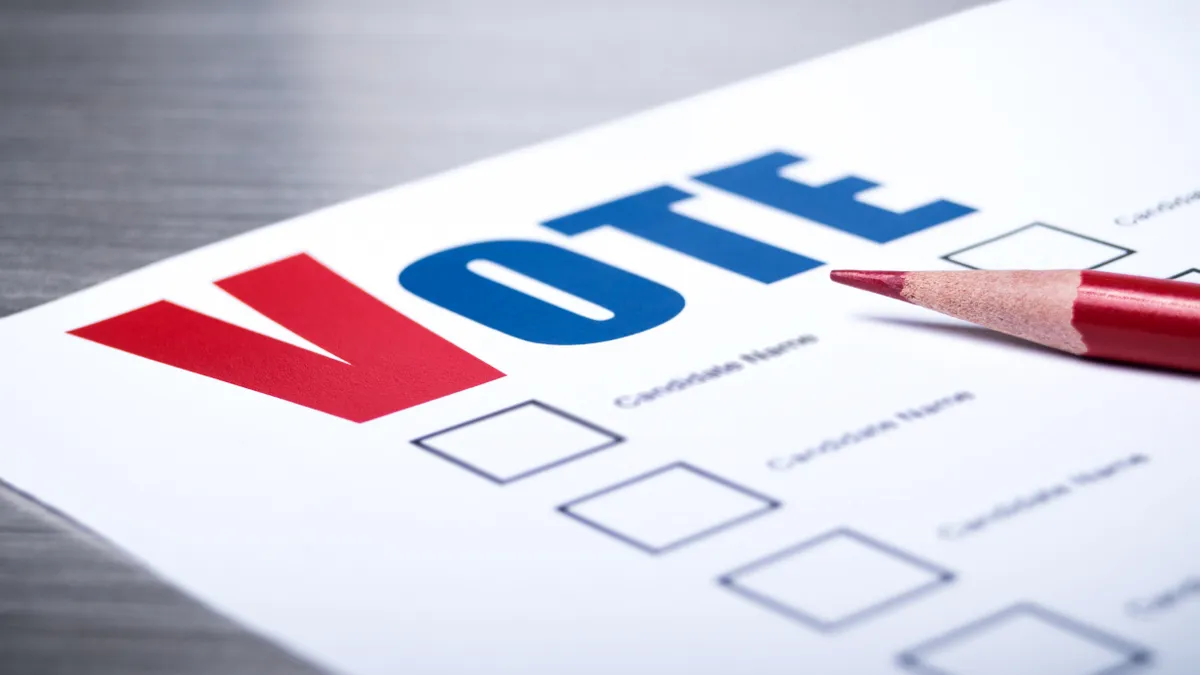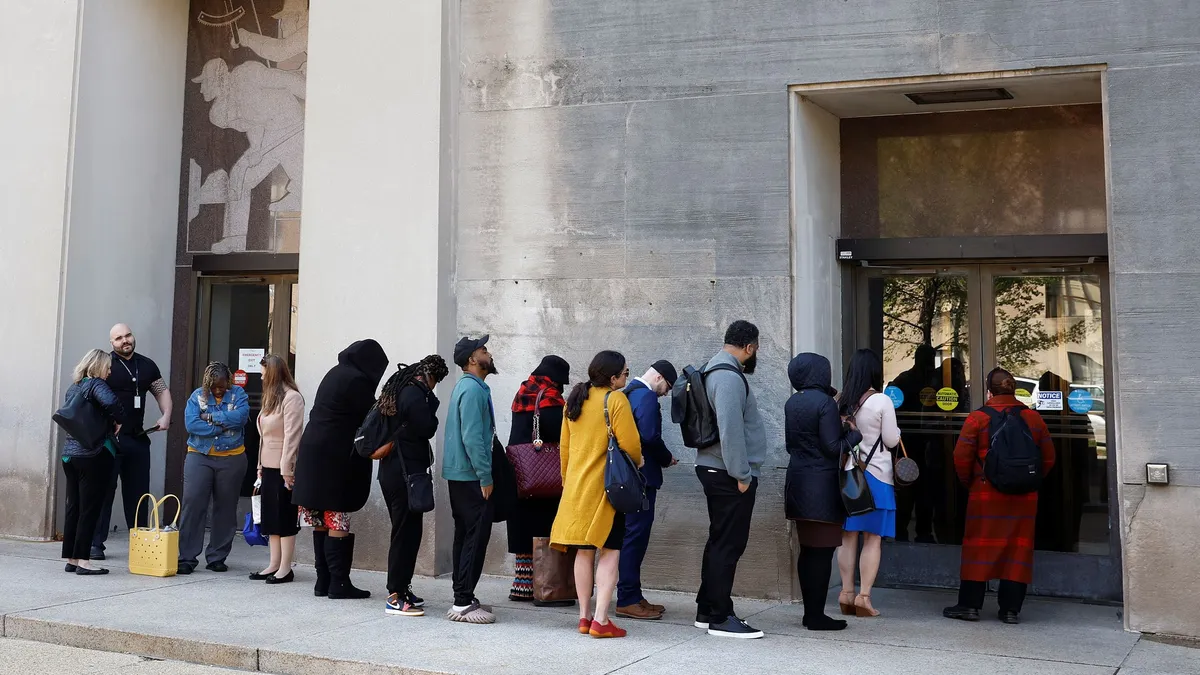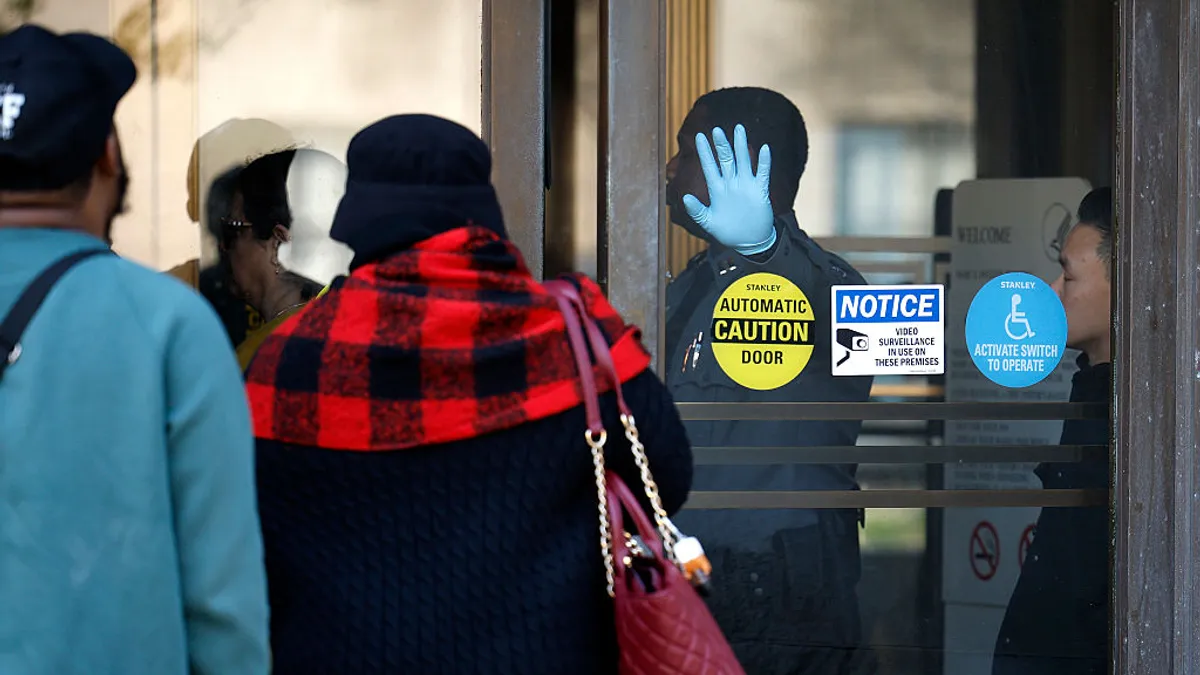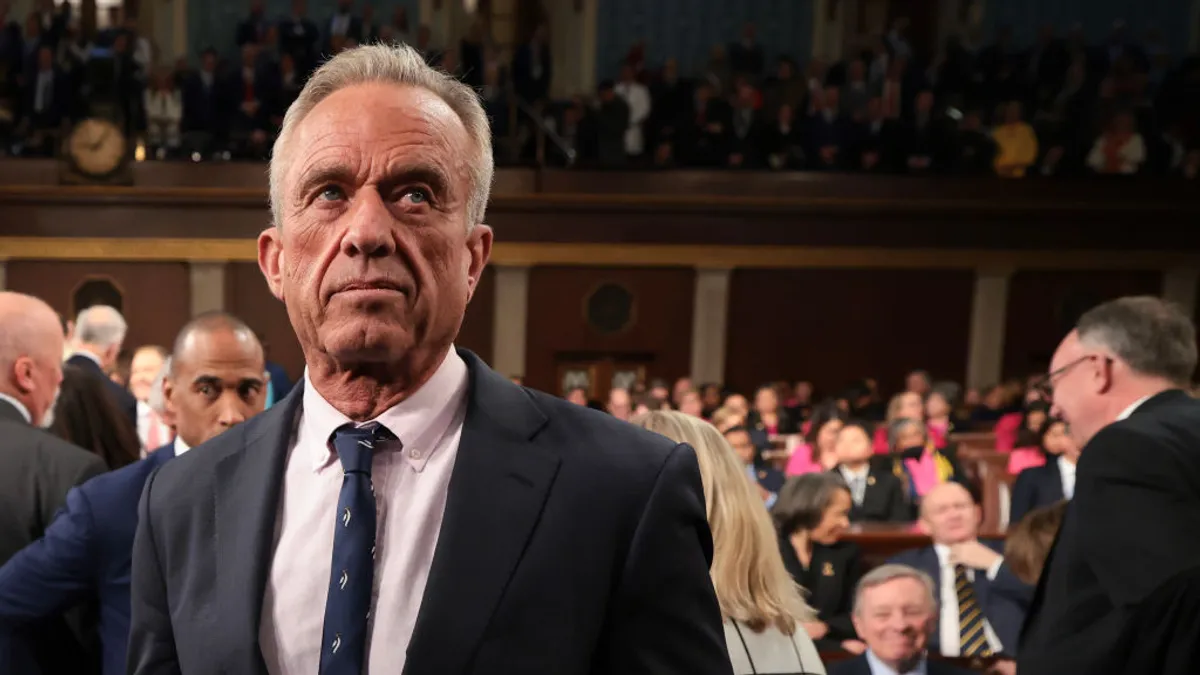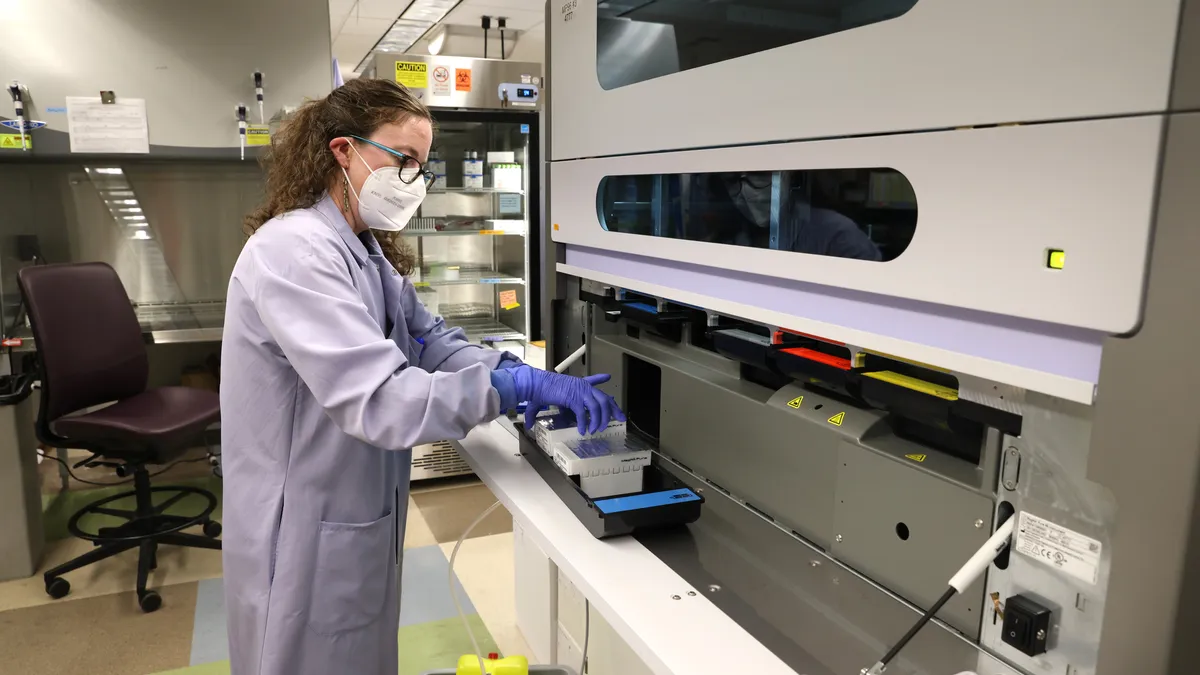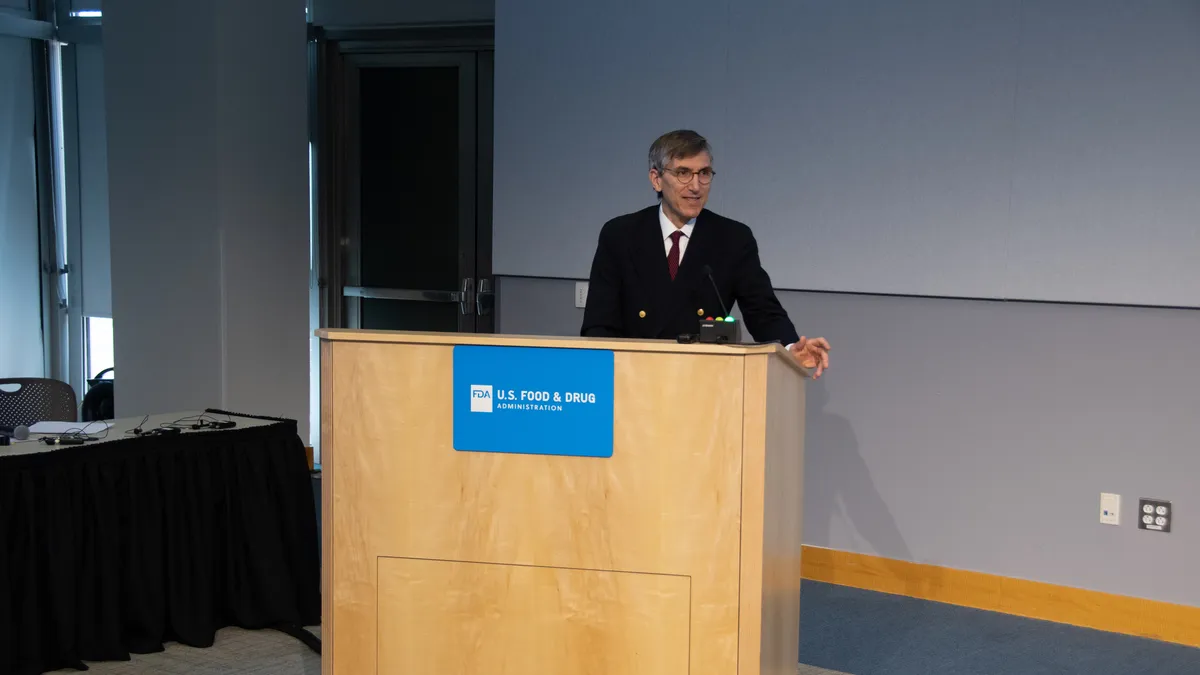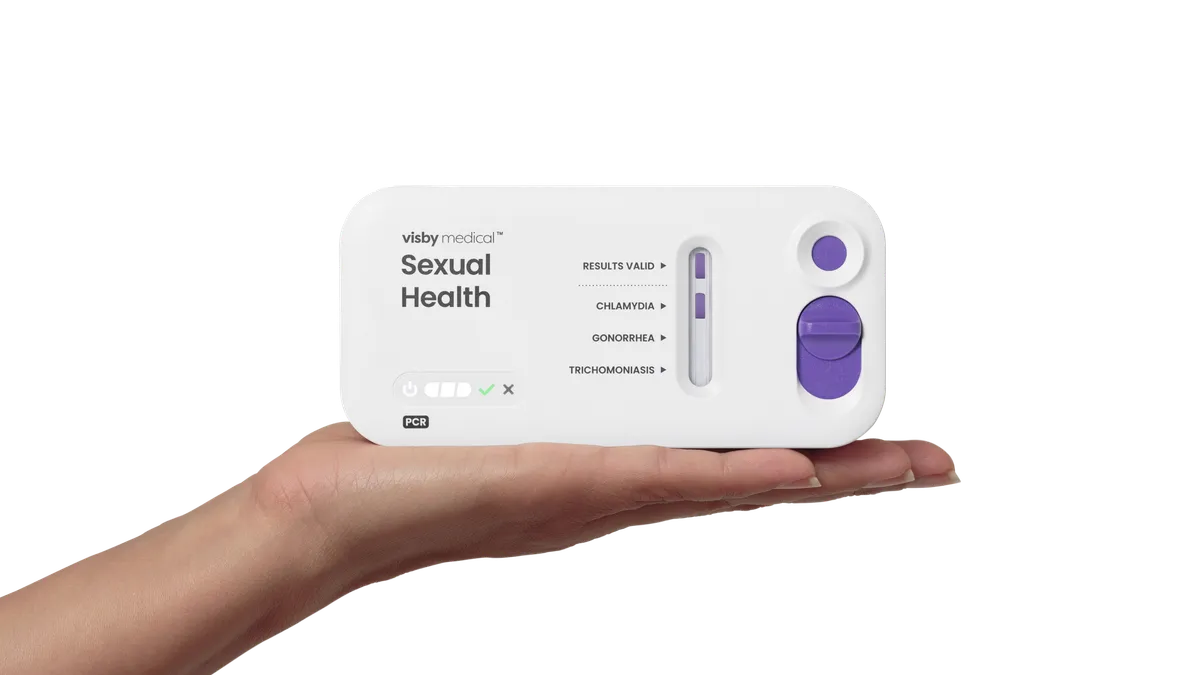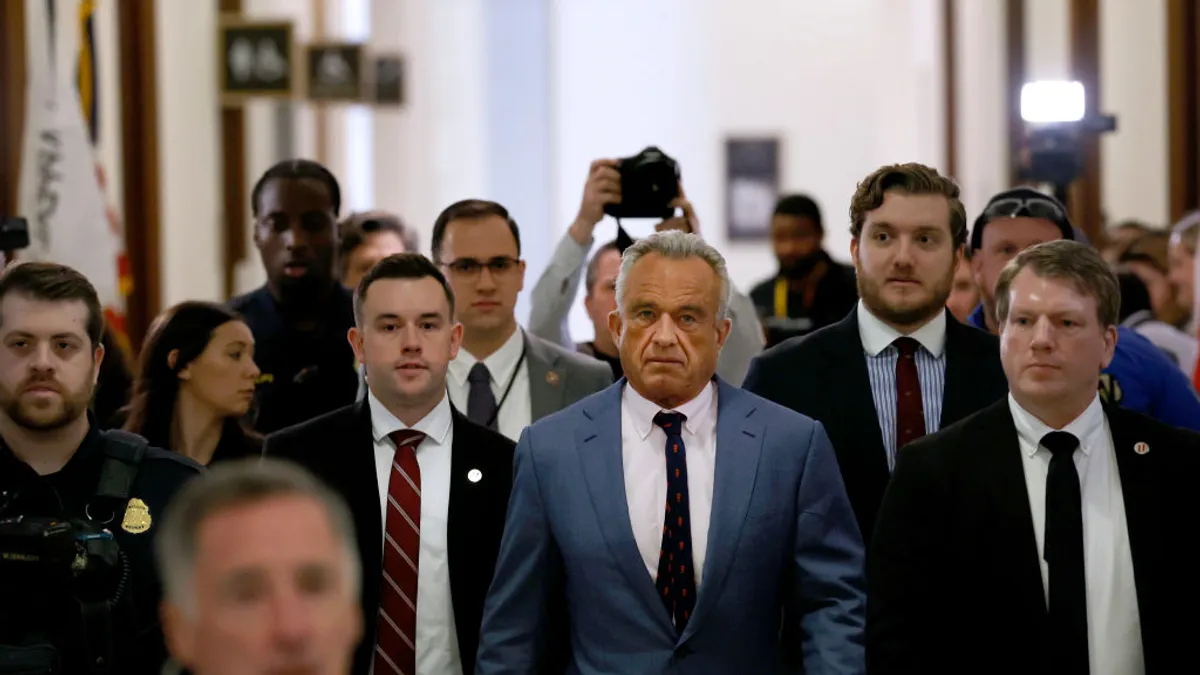Healthcare was by some polls the most important issue for 41% of Americans in the midterms, and voters had a chance to weigh in directly on a host of state ballot initiatives Tuesday.
Medicaid expansion came out mostly a winner, a bid for nurse-to-patient ratios fell short, dialysis companies can breathe a sigh of relief, hospitals got a win in California and medical device companies won a sales tax exemption in Nevada.
Here's a snapshot of 9 key votes:
Idaho, Utah, Nebraska Medicaid expansion: YES, Montana: NO
Three predominantly red states, Idaho, Nebraska and Utah, all voted in favor of Medicaid expansion, enabled by the Affordable Care Act. The approval will expand coverage for an additional 325,000 Americans, according to Avalere research, and moves Medicaid away from being this "stereotypical welfare program," Rosemarie Day, founder and CEO of Day Health Strategies, told Healthcare Dive.
Idaho approved expansion with roughly 61% of the vote, with 94% of precincts reporting. Utah approved it by 54% with all counties tallied. Finally, Nebraska approved Medicaid expansion by a slim majority of 53% with almost all precincts reporting in what Day called a "ripple effect" she expects to continue.
Montana was the odd man out this election cycle. The state already expanded its Medicaid program in 2015, adding roughly 129,000 citizens to coverage since then. However, funding for the program dried up after four years, and on Tuesday, Montana voters rejected permanent Medicaid expansion by a margin of 55% to 45%, with all precincts reporting.
There's still a chance the state's legislature will expand the program before its current authorization expires June 30, however.
With the addition of Idaho, Nebraska and Utah, now 36 states (and the District of Columbia) have opened up the program to more beneficiaries. Fourteen have not.
Because nearly one-fifth of Americans rely on Medicaid for their healthcare coverage, (along with a significant portion of seniors in long-term care or nursing homes) not expanding the program could have serious consequences for the low-income population of those remaining 14 states. John Cipriani, VP of research for Global Strategy Group, reported in October that few Americans supported cutting Medicaid.
Rural hospitals in Idaho, Nebraska and Utah are likely winners as well, as expansion of Medicaid means more reimbursement from many impoverished patients who would otherwise result in bad debt.
Expansion also benefits Medicaid managed care providers such as Centene and Molina, which pay states on a per member, per month basis to care for a segment of the Medicaid population.
Along with the ballot approvals, Democratic governors were elected in Kansas, Maine and Wisconsin, so it's likely Medicaid expansion efforts in those states will gain traction in the coming years. That would extend coverage to about 326,000 people, according to Height.
Keep an eye on Maine as well, where Democrat Janet Mills is taking the reins from outgoing Gov. Paul LePage. She has said she plans to implement the Medicaid expansion that voters approved last year but LePage has refused to carry out.
Nevada's medical equipment sales tax exemption: YES
Passing with almost 70% of the vote, Question 4 will amend the Nevada constitution to require the legislature to pass a law allowing the sales tax exemption of durable medical equipment, oxygen delivery equipment and mobility enhancing equipment if prescribed by a healthcare professional.
Although some critics worried amending the constitution would prevent timely future reforms, voters already approved of the measure in the 2016 general election. But for an initiated state constitutional amendment to be passed in Nevada, it needs to pass twice, according to Ballotpedia.
California cutting dialysis costs and revenue: NO
California voters defeated Proposition 8 by a margin of 62% to 38% with 93% of precincts reporting as of Wednesday morning, a victory purchased by the dialysis industry through an $111 million campaign.
The measure would have required dialysis clinics to refund patients or payers if their revenue exceeded 115% of the costs of direct patient care or healthcare improvements. Big names such as DaVita, U.S. Renal Care and Fresenius are likely breathing a sigh of relief as they avoid reimbursement regulation, although dialysis centers could continue to face regulatory risk at the state and federal levels.
"It's disappointing that the SEIU-UHW used the ballot initiative process as leverage in pursing their own objectives, despite the potential harmful consequences to nearly 70,000 California dialysis patients," DaVita said in a statement Wednesday morning, referring to the Service Employees International Union-United Healthcare Workers West, one of the largest hospital workers unions in the country, which sponsored the initiative.
SEIU-UHW plans to refile the ballot initiative in 2020 in California and other states, along with a new version of an initial bill to stem boosted dialysis profits that Gov. Jerry Brown vetoed earlier this year.
Maine's payroll and non-wage income tax for universal home care: NO
The state's big headline from Tuesday is the election of its first-ever female governor in Mills. Question 1, a proposition to raise taxes on Maine's wealthiest businesses and citizens to fund home care for the disadvantaged and elderly, suffered a quieter defeat.
On Tuesday night, with two-thirds of precincts reporting, 63% of the votes were against the proposal, which was controversial from the start. Conservatives argued the tax hike would be bad for Maine's economy and liberals contended it was vital to assure care for the elderly and disabled.
All four candidates for governor (including Mills) opposed Question 1. Jason Savage, executive director of the Maine Republican Party, called it a "horrible idea." It seems like a majority of Mainers agreed.
Massachusetts nurse-to-patient staffing ratios: NO
Voters in Massachusetts struck down a ballot initiative to mandate nurse-to-patient staffing ratios in hospitals. This was expected, as voters leaned toward "no" on Question 1 in polling earlier in October.
Voters went against the initiative hard, with 70% of the votes against limiting the nurse-to-patient ratio with almost 85% of precincts reporting as of Wednesday morning.
The president of the Massachusetts Nurses Association, which spearheaded the campaign in favor of Question 1, conceded the vote in prepared remarks late Tuesday night. "There are nurses caring for too many patients and those patients are unnecessarily being put in harms way," Donna Kelly-Williams said. "The status quo is not a solution here."
Proponents cited the risks that short-staffed and overworked nurses pose to patient health and safety, along with damaging workforce retention in hospitals.
This is a victory, however, for hospital interests. If the initiative had passed, hospitals would have been forced to either hire more nurses or take in fewer patients to comply with strict limits on the number of patients per nurse.
The result gives hospitals "the ability to continue providing the best possible care for patients," Massachusetts Health and Hospital Association CEO Steve Walsh said in a statement, also noting the results were the "beginning of a conversation" about the future of the healthcare workforce.
California passed similar legislation in 2004 and Massachusetts already has mandated staffing ratios in ICUs. Question 1 would have expanded such ratios hospital-wide.
California bonds for children's hospital construction: YES
California has once again given pediatric hospitals a fiscal lifeline. Proposition 4, the measure to authorize $1.5 billion for the Children's Hospital Bond Act Fund, passed with 61% of the vote.
The approval will create a pool of funds to be split between 13 California hospitals: $1.08 billion to eight nonprofit hospitals treating low socioeconomic status children and those with special health needs; $270 million to five University of California general acute hospitals; and $150 million to fund grants to public and private hospitals providing care to children with chronic or infectious conditions.
Though skeptics touted the high price tag of the bonds, casting them as rewarding hospitals for fiscal mismanagement (and the third bond measure to prop up California's pediatric systems in 15 years), it always seemed likely the measure would pass. The previous two both did with clear majorities.


